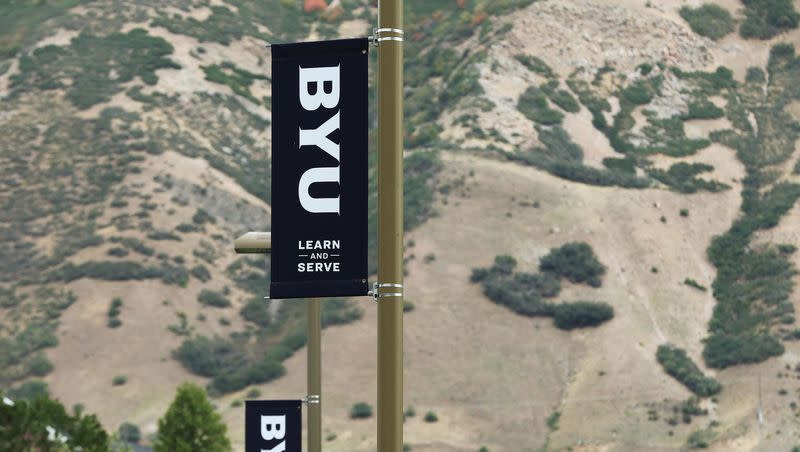Opinion: What’s at stake in Stanford, BYU Law School cancel culture debate

Martin Luther King Jr. proclaimed that “law and order exist for the purpose of establishing justice.” But establishing justice is no simple task and first requires an understanding of truth and facts. To this end, the American legal system was designed to be “adversarial,” presenting competing narratives by “dueling advocates” engaged in a contest of ideas presided over by a dispassionate judge.
This system has a way of ferreting out the truth. “Two prejudiced searchers starting from opposite ends of the field,” observed the British judge Lord Devlin, “will between them be less likely to miss anything than the impartial searcher starting at the middle.”
This system is not just the backbone of legal practice, but of any proper legal education as well. In law schools across the country, students engage in formal and informal debate. A typical class session involves analyzing both the majority and dissenting opinions, pitting them against each other and testing their merits. At its best, this dialectical process involves a series of refinements of associated ideas, until at last a unifying principle emerges: truth, or at least, our best approximation of it.
A field at the crossroads
This system and its lofty goals are at stake in the ongoing cancel culture debate. It’s what is so troubling about the recent ejection of Judge Kyle Duncan from a Stanford event by agitating students. Yes, his treatment was appalling, but pause to consider how the Stanford students got to that mobocratic state of mind in the first place.
At least in part, it’s because students have become so isolated and exercised in their views of the “other side” as foreign and dangerous. Whether or not there was any truth to be had in Duncan’s speech, the students certainly missed out on the basic truths of humanity, civility and respect — truths that can only be cultivated by engaging with (as opposed to militating against) our ideological opposites.
Related
Sen. Mike Lee was not wrong to draw a connection between Yale, Stanford and BYU. The cancellation of a Richard Duncan event at BYU, where professor Duncan was slated to argue in favor of the recent Supreme Court abortion decision Dobbs v. Jackson, was far more civil than what transpired at Stanford or Yale, but nonetheless a blow to the adversarial system that undergirds legal education everywhere.
Bending to preference
Engagement in the adversarial system alone does not guarantee truth. Advocates can get so caught up in their own arguments that they become blind to their flaws and start to sacrifice truth for convenience. That’s partly how I read the public statement from the BYU Law School regarding the Duncan cancellation — which seemed to reduce the whole issue to a mere procedural error.
Had the school administration spoken with the Federalist Society students involved before releasing their statement, they would have no doubt discovered that the president of the society had filled out the proper forms and had received permission for the event. In claiming that “no Federalist Society event has ever been denied,” to their knowledge, the school administration must also be forgetting the communication they sent the student president of our Federalist Society chapter stating, “we are going to cancel Professor Duncan’s debate,” and referencing “the reaction the last time he visited” as a reason for the cancellation.
Related
Administrators are often overwhelmed with many matters, and it’s understandable that perhaps this wasn’t the most important priority. But institutions and individuals need to appreciate the broader pressures quieting political diversity on law school campuses. If there’s any hope of maintaining the robust adversarial legal education our nation has come to rely on to establish justice and truth, we must seek to resist these forces that are chilling the very debates we so desperately need.
Back to first principles
Upholding the adversarial system does not mean that all things must be subject to doubt and skepticism. Questioning the fundamental principles of humanity and society often undermines the search for truth rather than advancing it. How then to resolve the tension between what claims should be open to debate, versus accepted as settled?
I can’t speak for other schools, but tucked away on the Wasatch Front, at the base of the Uintas, and caddy-corner to an old-style creamery where families from all over the country visit to enjoy a scoop of “Graham Canyon” ice cream, there lies a law school “committed to the teachings of Jesus Christ.”
Though they teach the laws of the land, along with their concomitant theories and philosophies, they are tasked to do so as “enlightened by the laws of God.” If anyone can strike the proper balance, it must be Brigham Young University.
Professor Justin Collings spoke a year ago regarding the vision of a “unique university in all the world” — a school where truth, beauty and glory ring from the ramparts, a school in Zion. I watched this devotional online from my desk in the law school. I was moved. But the lofty picture he painted of BYU’s future is not a guarantee. A Latter-day Saint leader recently observed that this will only happen through embracing our unique identity — by daring to be different. For the BYU Law School, protecting robust debate on important questions is one way to be different, even as other universities increasingly bend to individual preference.
Garrett Hostetter is a third year law student at Brigham Young University’s J. Reuben Clark Law School.

